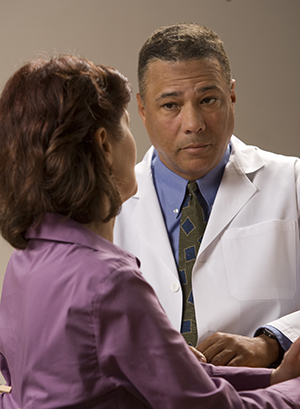Treating Sexual Assault
Treating Sexual Assault
After a sexual assault, it's normal to feel angry, afraid, and even ashamed. But try not to let these feelings keep you from getting medical and psychological care. Medical treatment can help you recover physically as well as emotionally.
What to expect in the Emergency Room (ER)
You will be asked about the assault. These questions may be painful, but they are important to help you. A friend or counselor can provide support. A healthcare provider or nurse will then examine you gently. If you agree, photographs will be taken of any bruises you have. You will have blood tests to check for pregnancy and sexually transmitted diseases (STDs). Samples may also be taken from your mouth, vagina, or rectum. These will be tested in a lab for semen (the fluid that carries sperm). Other samples may be taken from under your fingernails or your clothes. If you decide to file a police report, these samples can be used as evidence. A healthcare provider or nurse will also discuss the following:
Sexually transmitted diseases. Sexual assault can place you at risk for gonorrhea, chlamydia, syphilis, and viral hepatitis (hepatitis B or C). You may choose to be treated for some of these diseases right away. Or you may decide to wait for your test results.
HIV. You have a very slight risk of getting HIV (the virus that causes AIDS) from a sexual assault. You have the option of receiving medicines to help protect against the virus.
Pregnancy. If you choose, a simple treatment can help prevent pregnancy. Your healthcare provider can discuss other options with you.
Follow-up care
Be sure to visit your healthcare provider a week or 2 after the assault. You'll get the results from tests taken in the ER. Your healthcare provider can also help you find services and groups for sexual assault survivors. It is very important to care for your emotional and psychological well-being after a sexual assault. Visiting a rape crisis center, counselor, psychologist, or psychiatrist can help.
Updated:
February 15, 2018
Sources:
Patient information: Care after sexual assault (Beyond the Basics). UpToDate
Reviewed By:
Ballas, Paul, DO,Fraser, Marianne, MSN, RN,Image reviewed by StayWell art team.
